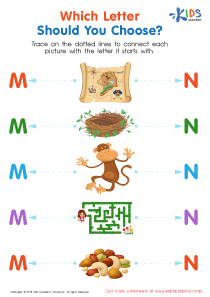Letter recognition Normal Lowercase/Small Letters Worksheets for Ages 4-7
10 filtered results
-
From - To
Enhance your child’s reading skills with our engaging "Letter Recognition Normal Lowercase/Small Letters Worksheets for Ages 4-7." Specially designed for early learners, these worksheets provide a fun, interactive way to master lowercase letters. Kids will enjoy colorful, age-appropriate activities that help them identify and write each letter. Our exercises are tailored to improve fine motor skills and reinforce letter-sound relationships. Ideal for both in-class and at-home learning, these resources support your child’s educational journey, laying a strong foundation for literacy. Watch as your young reader confidently navigates the alphabet and builds essential reading skills.
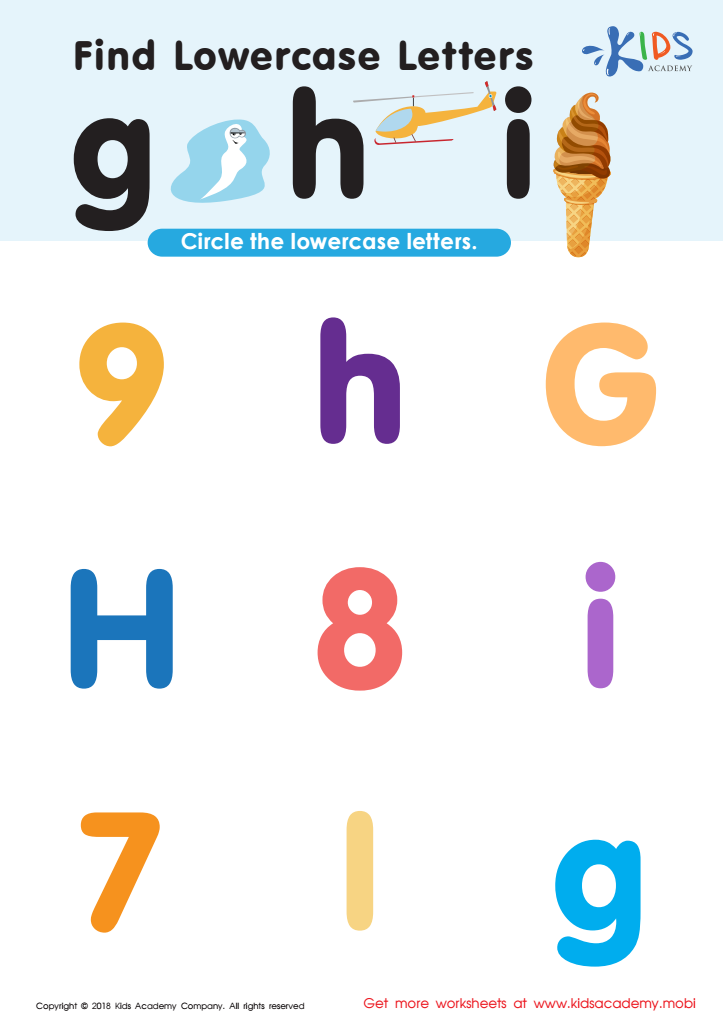

Find Lowercase Letters g h i Worksheet
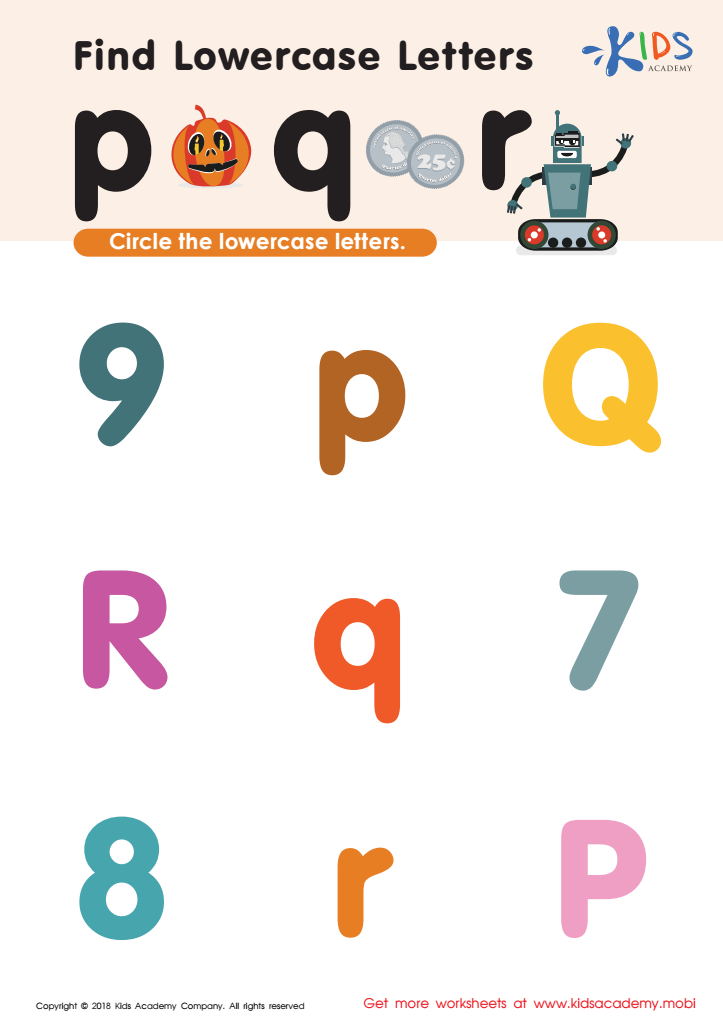

Find lowercase Letters p q r Worksheet
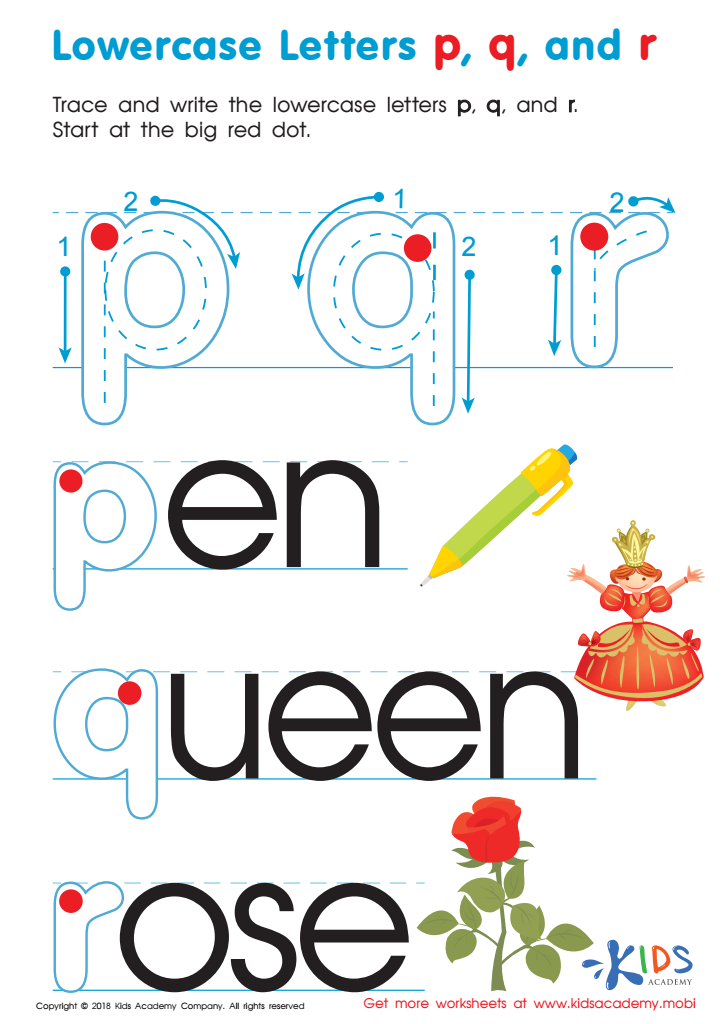

Lowercase Letters p q r Worksheet
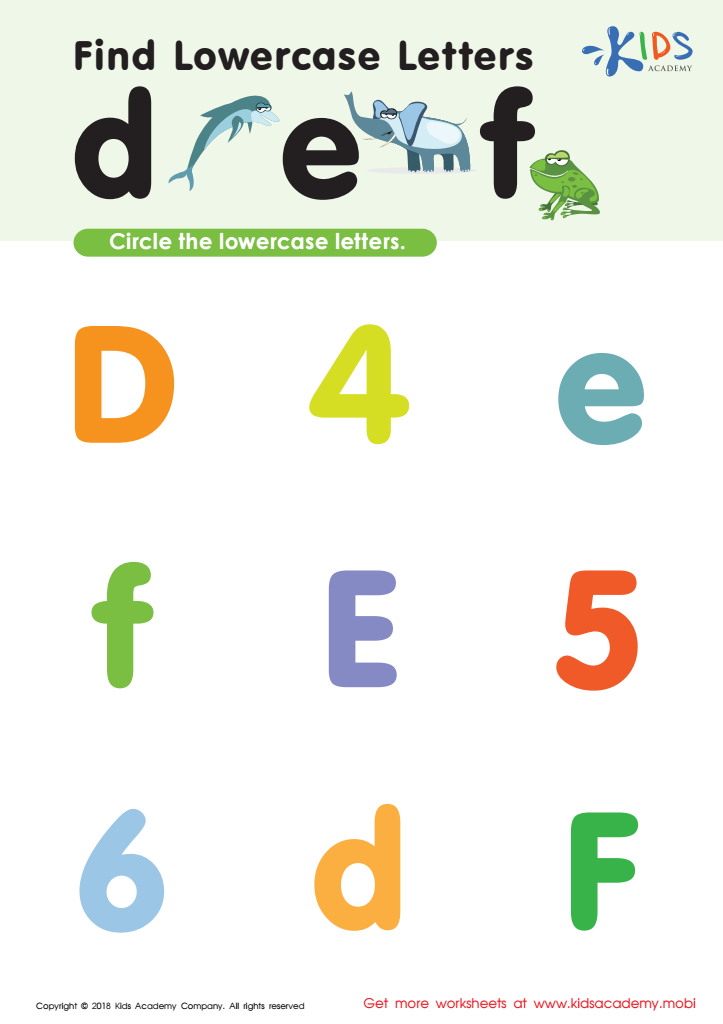

Find Lowercase Letters d e f Worksheet
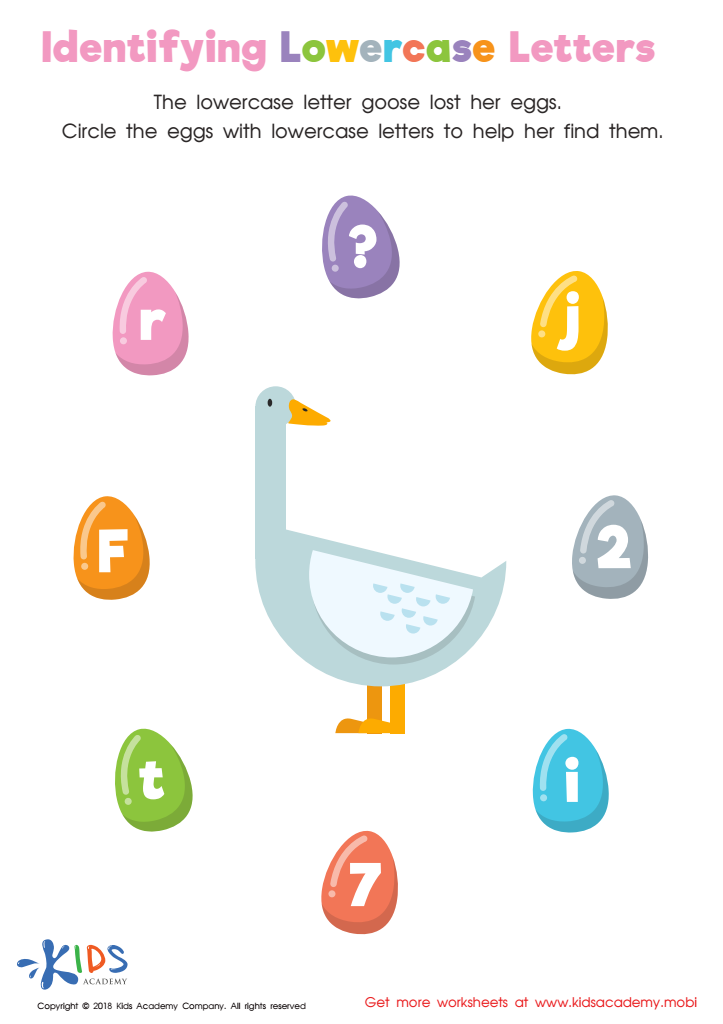

Identifying Lowercase Letters Worksheet
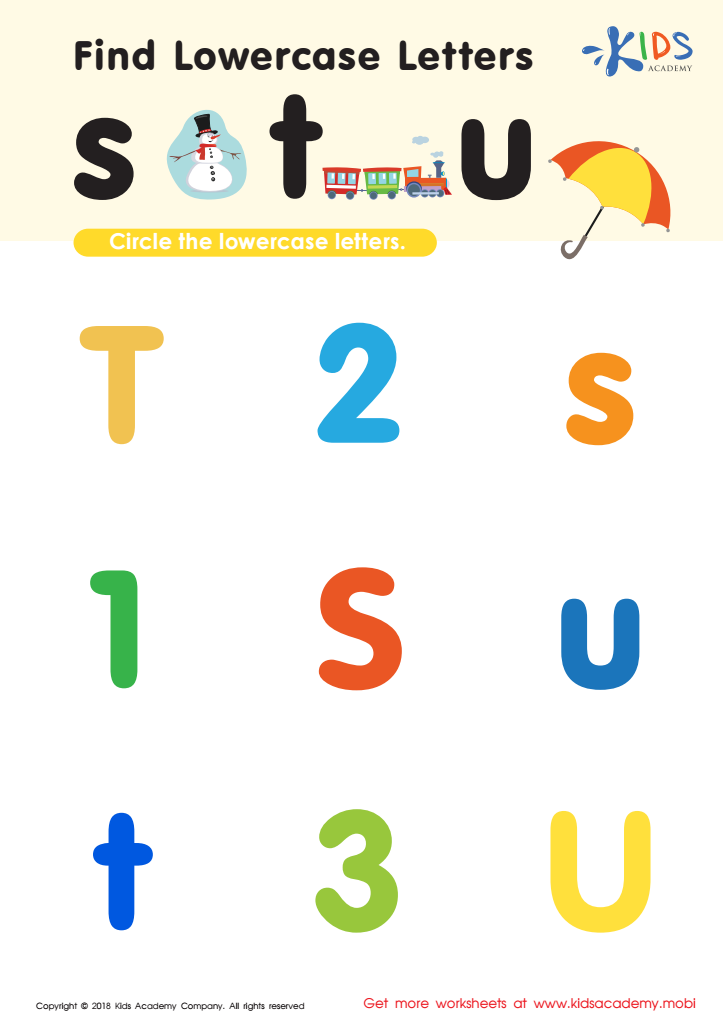

Find lowercase Letters s t u Worksheet
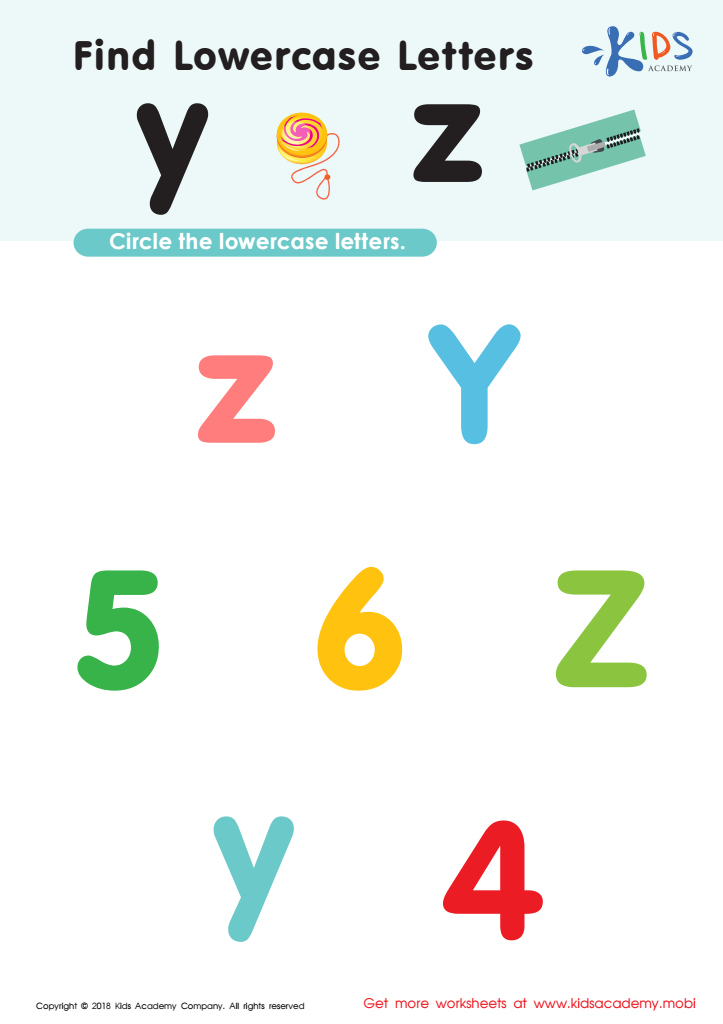

Find Lowercase Letters y z Worksheet
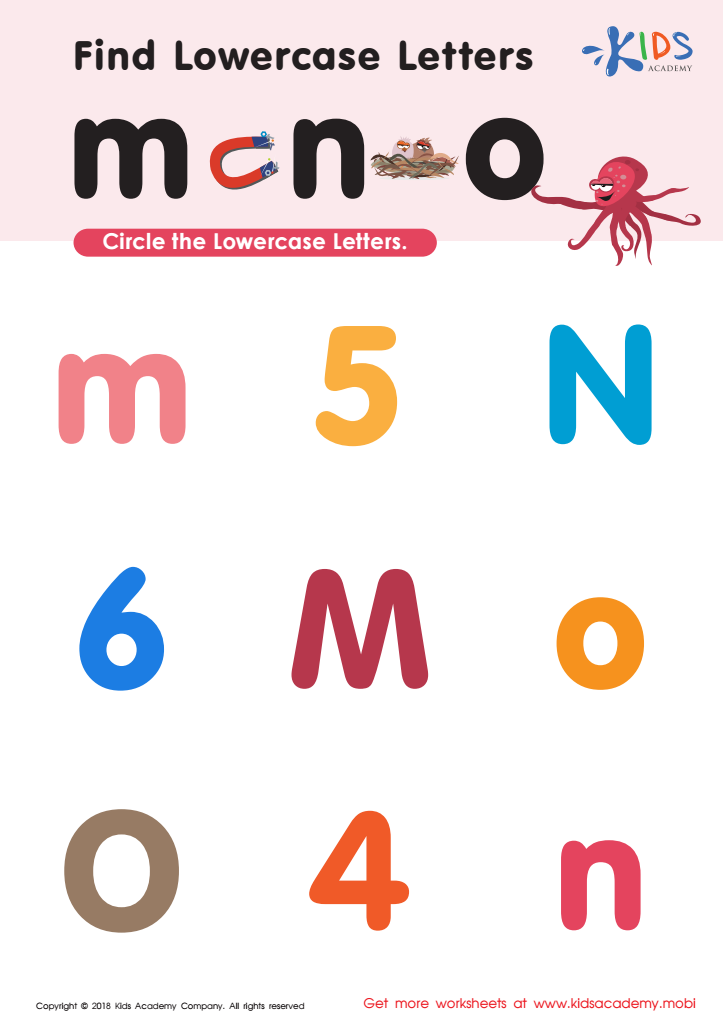

Find Lowercase Letters m n o Worksheet
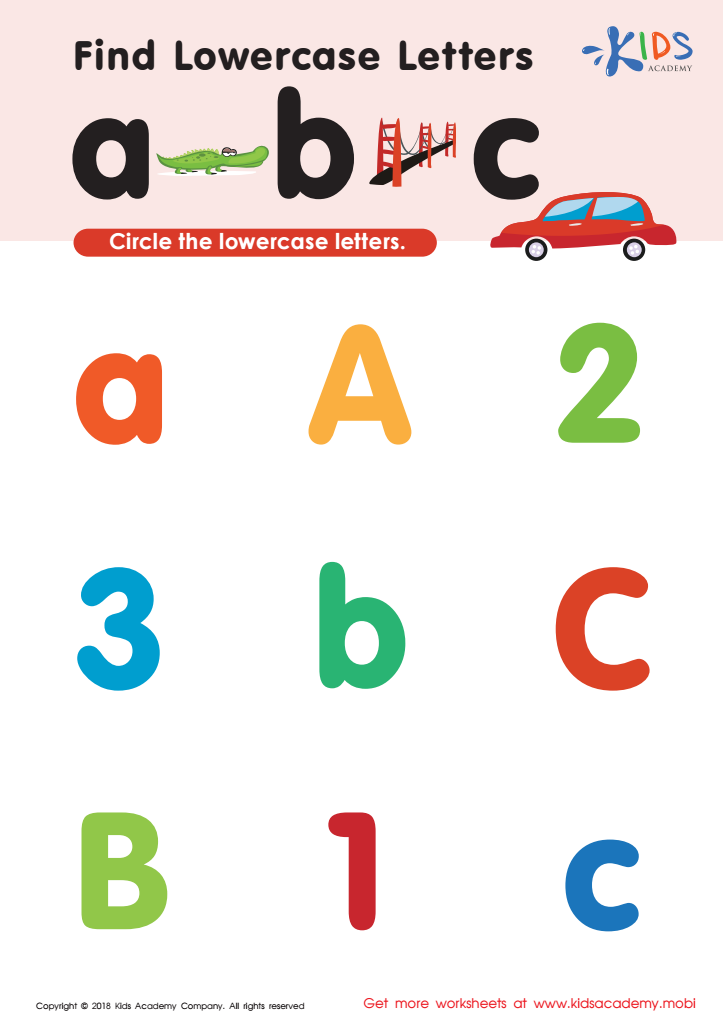

Find lowercase letters a b c Worksheet
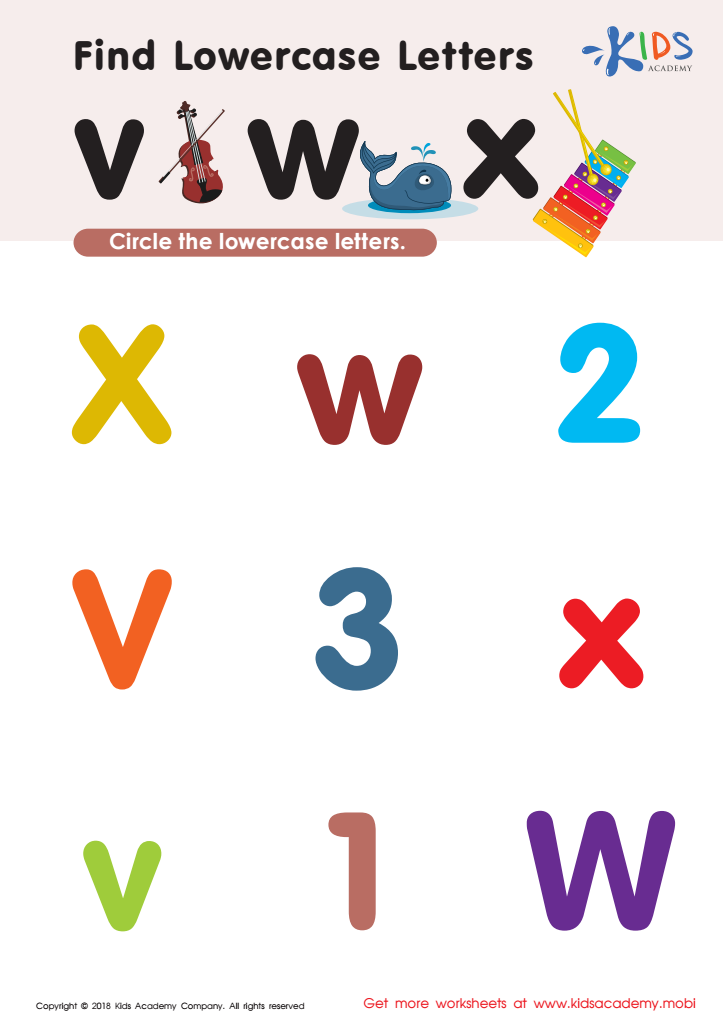

Find Lowercase Letters v w x Worksheet
Letter recognition in lowercase or small letters is a critical foundational skill for children aged 4-7, and both parents and teachers should prioritize it for several compelling reasons.
Firstly, lowercase letters are more prevalent than uppercase letters in written text, appearing approximately 95% of the time. Proficiency in recognizing lowercase letters enables children to decode words efficiently, fostering early reading skills. When children can quickly and accurately identify letters, they are better prepared to learn phonics, which is the relationship between letters and sounds.
Secondly, strong letter recognition skills contribute to a child’s writing development. Knowing lowercase letters allows children to practice forming words and sentences correctly. This helps eliminate confusion when transitioning between uppercase and lowercase letters, which is crucial as they begin to compose written work more independently.
Furthermore, early mastery of letter recognition boosts a child’s confidence in literacy. Children who struggle with recognizing letters may feel frustrated or disheartened, impacting their overall enthusiasm for learning. By ensuring that children know lowercase letters, parents and teachers set them on a path to success, not just in reading and writing, but also in other academic areas that require these foundational skills.
Incorporating playful and engaging methods into letter recognition practice can make learning enjoyable, nurturing a lifelong love for reading and learning.
 Assign to My Students
Assign to My Students




